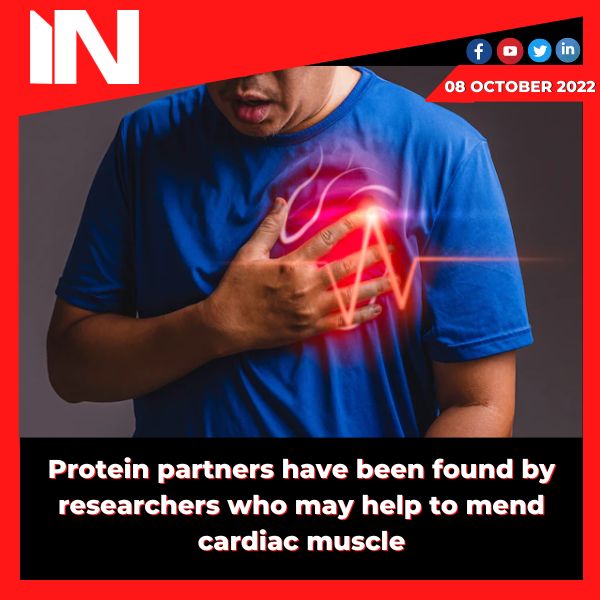Science
A potato in space? In unique discovery, oblong-shaped planet found

Anything is possible. Well, really, because it’s hard to imagine a planet like a potato. But astronomers at the European Space Agency have actually found one.
These experts discovered a rectangular planet called WASP-103b.
It appears to be the first planet to “morph into a more rugby shape than a sphere,” ESA said on Tuesday.
This unique planet is in the constellation Hercules.
According to the researchers, the planet’s strong tidal forces are caused by the proximity of the host star, which appears to have bent it out of its traditional spherical shape.
Although it was first discovered in 2014, recent observations by ESA’s Cheops telescope mission confirmed its squashed shape.
Complete News Source : Wion
health and remedies
Patterns of behaviour that emerge after trauma
Trauma is a deeply distressing or disturbing experience that can leave a lasting impact on a person’s mental and emotional health. It can result from a range of events, such as natural disasters, accidents, physical or emotional abuse, or military combat. Trauma can have a significant effect on a person’s behavior and can manifest in various ways. Here are some patterns of behavior that often emerge after trauma:
- Hyperarousal: After experiencing trauma, a person may feel constantly on edge, with heightened levels of anxiety and tension. This can manifest as irritability, restlessness, and difficulty sleeping.
- Avoidance: Trauma can also cause a person to avoid situations, people, or places that remind them of the traumatic experience. This can lead to social withdrawal, isolation, and a loss of interest in previously enjoyable activities.
- Emotional numbness: Trauma can cause a person to feel emotionally disconnected or numb, making it difficult for them to experience positive emotions such as joy or love.
- Hypervigilance: A person who has experienced trauma may be hyper-aware of their surroundings and perceive threats where none exist. This can lead to an increased sense of danger, which can trigger anxiety or panic attacks.
- Flashbacks: Trauma can cause a person to experience vivid and intrusive memories of the traumatic event. These flashbacks can be triggered by a range of stimuli, such as sights, sounds, or smells.
- Guilt and shame: Trauma can cause a person to experience feelings of guilt, shame, and self-blame. They may feel responsible for what happened to them, even when it was beyond their control.
- Substance abuse: Trauma can lead to the use of drugs or alcohol as a way of coping with difficult emotions. This can quickly become a self-destructive pattern of behavior that exacerbates the trauma.
It’s important to note that not everyone who experiences trauma will display all of these behaviors, and that each person’s response to trauma is unique. However, recognizing these patterns of behavior can help individuals and their loved ones identify when trauma may be a contributing factor to mental and emotional health challenges. Seeking professional support, such as therapy or counseling, can help individuals process their trauma and learn healthy coping mechanisms to manage their behavior.
Was this response better or worse?BetterWorseSame
Group Media Publications
Entertainment News Platforms – anyflix.in
Construction Infrastructure and Mining News Platform – https://cimreviews.com/
General News Platform – https://ihtlive.com/
Podcast Platforms – https://anyfm.in
-

 Bollywood2 months ago
Bollywood2 months agoAishwarya Rai maintains her stunning appearance in a new L’Oreal ad.
-

 health and remedies2 months ago
health and remedies2 months agoThe article discusses the potential health risks associated with swallowing dry ice
-
.jpg)
.jpg) Music1 month ago
Music1 month agoSidhu Moosewala’s father and baby brother feature on Times Square billboard; fans react. Watch
-
Bollywood3 weeks ago
Rasha, the daughter of Raveena Tandon, discusses how trolling affects her: “I think in processing it, feeling bad for a bit.”
-

 Entertainment2 months ago
Entertainment2 months agoThe Anant Ambani-Radhika Merchant pre-wedding bash in Jamnagar has received a list of guests.
-

 Trending2 months ago
Trending2 months agoDolly Chaiwala: “Didn’t Know Who He Was” in reference to giving Bill Gates tea
-

 Bollywood4 weeks ago
Bollywood4 weeks agoThe phrase “female-led projects” annoys Bhumi Pednekar. “It disgusts me deeply.”
-

 Trending2 months ago
Trending2 months agoOppo Reno 12 Pro Key Features Leak Online: Expected to Receive a 1.5K Display with a Density 9200+ SoC










%20(1).jpg)
%20(1).jpg)
%20(1).jpg)
%20(1).jpg)
.jpg)
%20(1).jpg)





